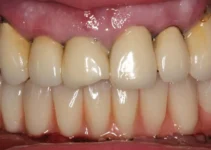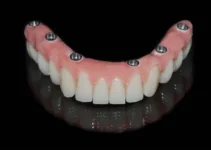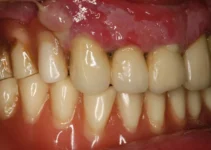Experiencing sudden onset of snoring can be both surprising and concerning. This condition isn’t just a nuisance but could also indicate underlying health issues. Factors such as weight gain, sleeping positions, alcohol consumption, and nasal obstructions can lead to snoring. Moreover, it’s important to consider whether age or lifestyle changes might have contributed to the condition. Consulting with a healthcare provider is essential to determine the specific causes and to explore effective treatments that can improve sleep quality and overall health.
Possible Medical Reasons for Sudden Snoring
Snoring can be more than just a nuisance; it may indicate an underlying medical condition. While occasional snoring is common and often harmless, sudden, persistent snoring could be a sign of a more serious issue. Identifying the cause is crucial for effective treatment and improved quality of life.
Medical conditions such as obstructive sleep apnea (OSA), chronic nasal congestion, and obesity are among the most common culprits. These conditions often disrupt normal airflow, causing the tissues in the throat to vibrate and produce the characteristic snoring sound. Addressing these underlying problems can often reduce or eliminate snoring.
If you or a loved one have experienced sudden snoring, it is essential to consult with a healthcare provider. Various diagnostic tools can help pinpoint the cause, and appropriate treatments can be recommended. Understanding the root cause can also prevent potential complications and promote overall health.
Obstructive Sleep Apnea
Obstructive Sleep Apnea (OSA) is a condition where the airway becomes partially or completely blocked during sleep, leading to interrupted breathing. OSA is a serious condition that significantly impacts sleep quality and overall health. Individuals with OSA often experience multiple episodes of paused breathing throughout the night, each lasting from a few seconds to a minute or more.
Signs and symptoms of OSA include loud snoring, gasping or choking during sleep, and excessive daytime sleepiness. Other symptoms may include morning headaches, irritability, difficulty concentrating, and mood changes. If left untreated, OSA can lead to more severe health issues such as high blood pressure, heart disease, and stroke.
Treatment for OSA often involves lifestyle changes, such as weight loss and avoiding alcohol before bedtime. Continuous Positive Airway Pressure (CPAP) therapy is commonly prescribed, which uses a machine to keep the airway open during sleep. Other treatment options include oral appliances and, in some cases, surgical interventions.
Lifestyle Changes and Environmental Factors
Understanding the influence of lifestyle changes and environmental factors is crucial in maintaining oral health and ensuring the success of dental implants and bone regeneration. Various daily habits and external conditions can significantly impact the outcome of implant procedures and overall oral hygiene. Being aware of these factors can help in making informed decisions about personal health and wellness.
Patients undergoing dental implants are often advised to consider their lifestyle choices and environmental exposures. Simple modifications can greatly improve the chances of a successful implant and reduce the risk of complications. Here’s a closer look at some lifestyle changes and environmental factors that can affect oral health, particularly in the context of implantology and bone regeneration.
Weight Gain
Weight gain is an often-overlooked factor that can have a profound impact on oral health. Studies have shown that obesity and excessive weight gain are linked to an increased risk of periodontal disease, which can adversely affect the integration and stability of dental implants. Excessive body weight can lead to systemic inflammation, which in turn can compromise the healing process following an implant procedure.
Moreover, individuals with a higher body mass index (BMI) are at a greater risk of conditions such as diabetes and cardiovascular diseases, both of which can impede the body’s ability to heal and respond to surgical interventions. Maintaining a healthy weight through a balanced diet and regular exercise can significantly improve oral health outcomes and the success rate of implant surgeries.
Alcohol Consumption
Alcohol consumption is another critical factor that can influence the success of dental implants and bone regeneration. Research indicates that excessive alcohol intake can impair the healing processes and negatively affect the osseointegration of implants. Alcohol interferes with the body’s ability to produce new bone tissue, which is essential for the stability and longevity of implants.
Furthermore, alcohol can lead to dry mouth, which increases the risk of gum disease and oral infections. These conditions can make it more challenging to maintain good oral hygiene and, consequently, affect the health and stability of dental implants. Limiting alcohol intake and ensuring adequate hydration are important steps to support oral health and the success of implant procedures.
Sleeping Position
The way a person sleeps can also impact oral health and the success of dental implants. Poor sleeping positions, especially those that put pressure on the jaw and face, can interfere with the healing process after an implant procedure. Sleeping on the stomach or side can cause undue stress on the jaw, potentially leading to complications such as implant failure or bone loss.
It’s recommended to adopt sleeping positions that keep the head and neck aligned, reducing pressure on the jaw and implants. Using supportive pillows and ensuring a proper sleep environment can help maintain oral health post-surgery. Additionally, good sleep hygiene practices, such as maintaining a consistent sleep schedule and creating a restful sleep environment, can contribute to overall well-being and oral health. In conclusion, being aware of how weight gain, alcohol consumption, and sleeping position can affect oral health is vital for anyone considering dental implants or undergoing bone regeneration treatments. By making informed lifestyle choices and adjusting environmental factors, patients can significantly improve the outcomes of their dental procedures. For more detailed insights and tips on maintaining oral health, consider reading our other articles on the topic.
Temporary Conditions Leading to Snoring
Snoring can be a common issue affecting many individuals, and understanding its underlying causes can be crucial in addressing it effectively. While some people might snore regularly due to anatomical factors, there are several temporary conditions that can lead to snoring. Addressing these conditions promptly can often alleviate snoring and improve sleep quality. Among the most common temporary conditions that cause snoring are nasal congestion, allergies, and illnesses such as the cold or flu. Each of these conditions can obstruct normal airflow, leading to the vibrations that produce snoring. By identifying and managing these temporary factors, many can find relief from snoring and enjoy more restful nights.
Temporary snoring conditions are usually easier to manage compared to chronic snoring. Treating underlying health issues often leads to significant improvement in snoring symptoms. Let’s explore these temporary conditions in more detail.
Nasal Congestion
Nasal congestion is a frequent cause of temporary snoring. When the nasal passages are blocked or narrowed, airflow becomes restricted. This often leads to mouth breathing, which increases the likelihood of snoring. Congestion can arise from various factors, including sinus infections, nasal polyps, or even environmental irritants like smoke or pollution.
Treating nasal congestion generally involves addressing the root cause. This can include using nasal decongestants, saline sprays, or humidifiers to keep the nasal passages moist. In some cases, a warm, steamy shower before bedtime can also help open up the nasal passages and reduce snoring.
Another effective way to manage nasal congestion is to ensure the sleeping environment is free from allergens or irritants. Regularly cleaning bedding, using air purifiers, and maintaining a clean sleeping space can significantly reduce nasal congestion and, consequently, snoring.
Allergies
Allergies are a common cause of nasal congestion and subsequent snoring. When you have an allergic reaction, your nasal passages can become inflamed and swollen, restricting airflow. Common allergens include pollen, dust mites, pet dander, and certain foods. Seasonal allergies can also bring about temporary snoring episodes.
Treating allergies often involves a combination of medications and lifestyle adjustments. Antihistamines, nasal corticosteroids, and allergy shots are common treatments that can alleviate symptoms. Additionally, limiting exposure to known allergens by using hypoallergenic bedding and maintaining a clean home can also help.
For many people, making simple changes in their sleeping environment can make a significant difference. Using HEPA filters in your home, especially in your bedroom, can help remove airborne allergens and reduce allergy symptoms that lead to snoring.
Cold or Flu
When you’re suffering from a cold or the flu, nasal passages often become blocked, leading to mouth breathing and subsequent snoring. Inflammation and mucous buildup can make it difficult to breathe through your nose, causing temporary snoring episodes.
Managing symptoms of a cold or flu can help alleviate snoring caused by these illnesses. Over-the-counter medications such as decongestants, antihistamines, and cough suppressants can be beneficial. Additionally, keeping hydrated and resting can help speed up recovery and reduce snoring.
Nasal strips can also offer temporary relief by physically opening the nasal passages to allow for easier breathing. Combining these treatments with good sleep hygiene practices, like sleeping on your side and keeping your head elevated, can further reduce cold or flu-related snoring.
If you’re experiencing temporary snoring due to conditions like nasal congestion, allergies, or a cold or flu, addressing these underlying causes can significantly improve your sleep quality. Be sure to explore other articles on our site for more tips and treatments for snoring and related sleep issues.
Common Questions About Sudden Onset Snoring
If you’ve recently started snoring and are wondering why this change has occurred, here are some key questions and answers that might shed light on your situation.
What are the possible causes for suddenly starting to snore?
Sudden onset snoring can be attributed to several factors including weight gain, allergies, respiratory infections, alcohol consumption, and changes in sleeping posture. Aging, which naturally leads to changes in muscle tone of the throat, can also contribute, even if it seems to happen abruptly.
When should I be concerned about my sudden snoring?
If your snoring is loud, persistent, and accompanied by other symptoms such as daytime fatigue, choking or gasping during sleep, or pauses in breathing, it’s important to consult a healthcare professional. These could be signs of sleep apnea, a potentially serious condition that requires medical attention.

My name is Salman Kapa, a 73-year-old expert in bone regeneration and dental implantology. With decades of experience in the field, I am dedicated to advancing our understanding of oral health and hygiene. Through my research and writing, I aim to contribute to the development of innovative solutions in dental care.




